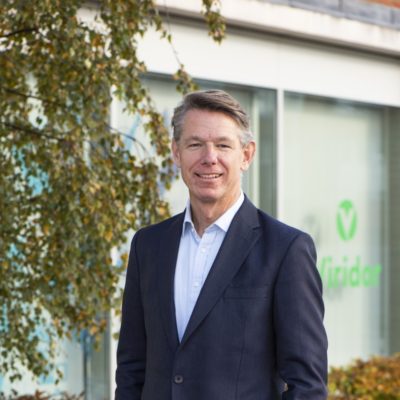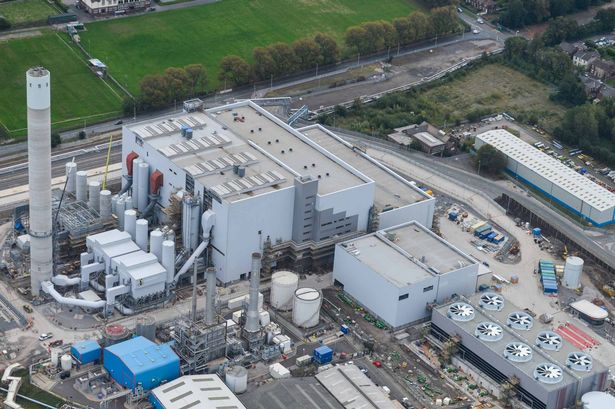The eight projects have been chosen out of 20 which the Department for Business, Energy and Industrial Strategy shortlisted in August 2022. The government at the time noted that the shortlist “doesn’t imply availability of funding but is purely the outcome of assessment against the Phase 2 criteria” (see letsrecycle.com story).
The successful projects announced today are split into two clusters as follows:
East Coast Cluster
- Net Zero Teesside Power
- bpH2Teesside
- Teesside Hydrogen CO2 Capture
HyNet Cluster
- Hanson Padeswood Cement Works Carbon Capture and Storage Project
- Viridor Runcorn Industrial CCS
- Protos Energy Recovery Facility
- Buxton Lime Net Zero
- HyNet Hydrogen Production Plant 1 (HPP1)
They were announced by the newly created Department for Energy Security and Net Zero and the Department for Business, Energy & Industrial Strategy.
List
The eight projects taken forward mean that a number of EfW plants which were shortlisted last year have now been dropped. This includes the council-run projects Tees Valley Energy Recovery Facility Project and the Redcar Energy Centre, as well as Suez’s Tees Valley facilities.
The government did however note that the list “does not represent the extent of its ambition”. It outlined that a process will be launched later this year “to enable further expansion of the listed clusters, beyond the initial deployment.”
Work will also be done to identify projects that could be potential alternatives to any of the initial projects “if any are unable to agree contracts within the criteria and timelines required”, the government added.
It then set out its plans to identify two additional clusters contributing to its ambition to capture between 20 to 30 million tonnes of CO2 per year across the economy by 2030.
The development follows an announcement made in the Spring Budget earlier this month, which pledged to commit up to £20 billion for the “early deployment” of CCUS (see letsrecycle.com story).
‘Delighted’

The announcement has been welcomed by Viridor, which said that its Runcorn facility, thought to be the largest single plant in the UK, is set to capture approximately 0.9 million tonnes of carbon emissions a year.
Kevin Bradshaw, CEO of Viridor commented: “We are delighted that Viridor’s Runcorn CCS project has been shortlisted by the UK Government. All credible analysis shows CCS to be essential to achieve the UK’s net zero commitments. Carbon capture on energy recovery facilities is critical if we are to decarbonise the waste sector. Viridor is proud to be working with government to lead the way. We look forward to engaging with the government to ensure that the UK becomes a world leader in industrial carbon capture.”
Commercial deployment
Another project chosen as a preferred option for potential funding was Protos ERF, the construction of which is being undertaken by Encyclis, formerly known as Covanta Europe. It is also co-owned by Biffa.
Encyclis outlined that its CCS plant proposed for the Protos ERF, which is currently under construction near Ellesmere Port, is planned to capture “upwards of 380,000 tonnes of CO2 per year”. The plant would then use the planned HyNet pipeline to transport CO2 for storage in depleted gas fields in Liverpool Bay.
Commenting on the development, Encyclis CEO Owen Michaelson said: “We are delighted to be moving into the next stage of the government’s carbon capture funding programme and are ready to work towards full-scale commercial deployment, in line with our construction timeline for Protos ERF, which will be completed in 2024.”
‘Commitment’
Despite not being selected to proceed with negotiations for support on this occasion, Suez’s chief executive John Scanlon also commented on today’s announcement.
Mr Scanlon said: “Today’s announcements confirm the government’s commitment to carbon capture as an essential component of decarbonising both the UK’s energy supply and industrial activities. We have been pressing ahead with our carbon capture project at Teesside, submitting a planning application earlier this year, and welcome today’s announcement that additional projects will be brought into the East Coast Cluster by 2030.
“With our prime location on the planned route of the East Coast Cluster pipeline, we’re ideally placed to be one of the first projects to supply carbon to the Cluster for storage, helping the UK towards its net zero goal,” he concluded.










Subscribe for free